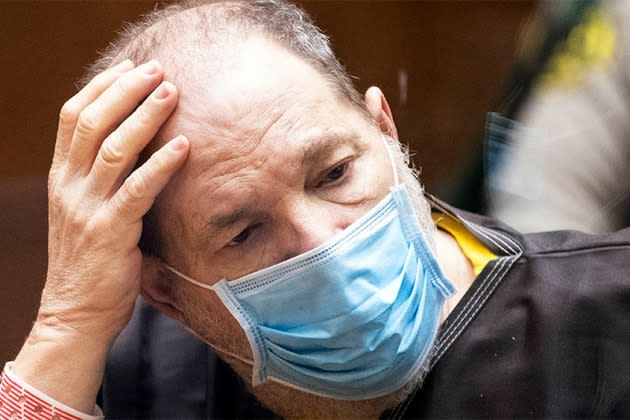Judge Blocks Weinstein Lawyers’ Subpoenas for Several Witnesses’ Emails, Texts and Communication

A Los Angeles judge on Monday ruled to limit the amount of information that could be obtained by Harvey Weinstein’s defense team for his upcoming trial on 11 counts of rape and sexual assault.
Judge Lisa B. Lench approved the prosecution’s motion to quash subpoenas from four witnesses for their correspondence, including personal emails and texts dating as far back as 2004, with one of the alleged victims (referred to as Jane Doe #4). However, the judge said she wouldn’t prevent the defense from serving future subpoenas to victims, and wouldn’t ask them to notify the prosecution in advance about attempts to serve.
More from Variety
“As I read the subpoenas, they are over-broad and they call for confidential information between those parties,” Lench said, referring to the witness’ privacy rights.
She also quashed subpoenas to the Los Angeles Police Department and Beverly Hills Police Department for investigation results, as well as a witness’ mental health records, which the judge deemed privileged communication.
Weinstein, wearing a blue mask that rarely covered his nose and a brown jail jumpsuit, held the book “John O’Hara’s Hollywood” in hand as he was wheeled into court by deputies on Monday morning.
Paul Thompson, the lead prosecutor, argued that the the subpoenas could “have a chilling effect on people coming forward” and “have the tendency to harass witnesses.”
In her ruling, Lench said, “If it appears that any activity on anyone’s part is harassing, I will take that up at a later time.”
Weinstein’s lawyer Alan Jackson spent the majority of the pre-trial hearing debating about what rights are covered under Marsy’s Law, also known as the California Victims’ Bill of Rights. He argued that the prosecution was misreading the law, which doesn’t allow witnesses to simply refuse the request for non-privileged materials.
“We’re asking for non-confidential communication that are relevant and salient,” he said. “Marsy’s Law doesn’t give them the right for defense to try their case in the dark.”
Jackson argued that even correspondence that didn’t mention Weinstein was relevant to the case.
“If the witness had communication and not a single mention was made of Weinstein, negative information is relevant as well,” he said.
“If a rape victim is raped and didn’t tell her friends about it, you think that’s exculpatory?” Lench asked hypothetically.
“It depends on the circumstances,” Jackson replied.
Another hearing is set for Friday. Weinstein goes on trial on Oct. 10. It’s expected to take six to eight weeks, so it would run into November.
The disgraced producer, 70, is already serving a 23-year sentence for sex crimes in New York. He has been held in the medical unit of the Twin Towers Correctional Facility in downtown Los Angeles for more than a year as he awaits his second trial.
Weinstein has pleaded not guilty to the charges, which pertain to five victims, and span from 2004 to 2013.
On May 11, Lench allowed prosecutors to call five additional women to testify about their own accusations against Weinstein. Such “prior bad acts” witnesses can be used to show a pattern of criminal conduct, even though the acts themselves are not among the charged offenses.
Prosecutors had wanted to call 15 witnesses to testify about the producer’s “prior bad acts,” but the judge excluded 10 of them, including actresses Rose McGowan and Daryl Hannah. The prosecution argues that the witnesses show Weinstein’s propensity to commit sex crimes, while the defense says the witnesses will smear his reputation and prejudice the jury.
A New York appeals court upheld Weinstein’s conviction on rape and sexual assault charges in June. Weinstein will be eligible for parole on the New York case in 2039.
Best of Variety
Sign up for Variety’s Newsletter. For the latest news, follow us on Facebook, Twitter, and Instagram.

